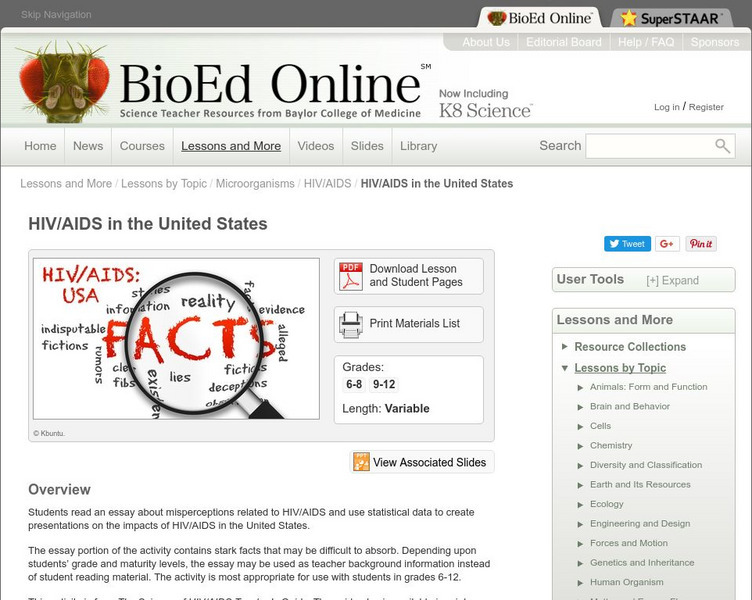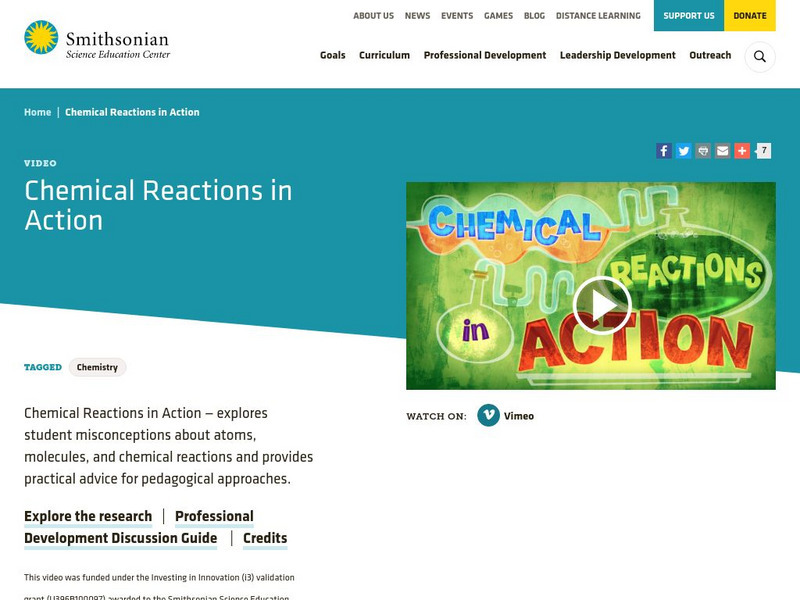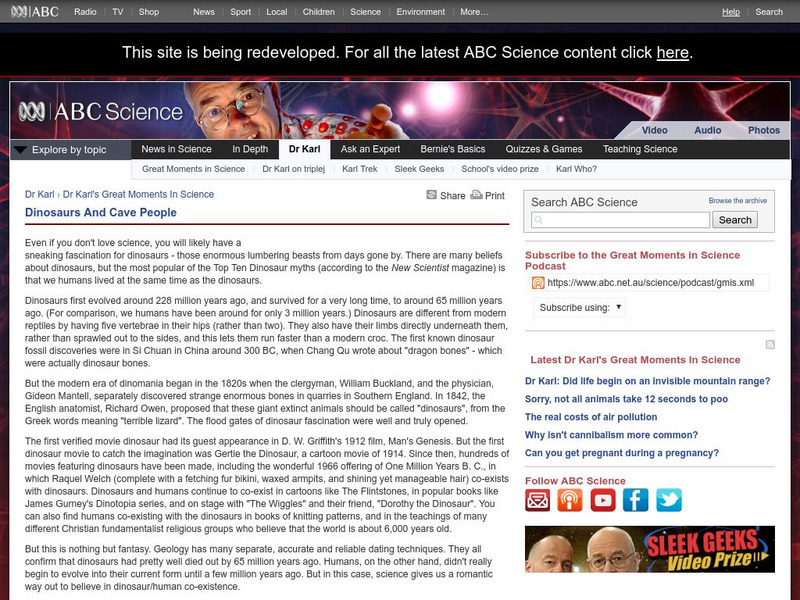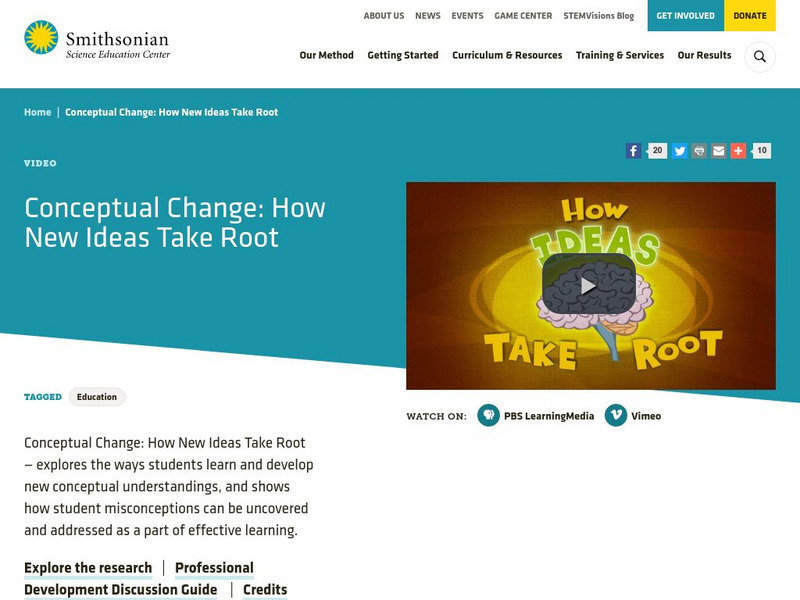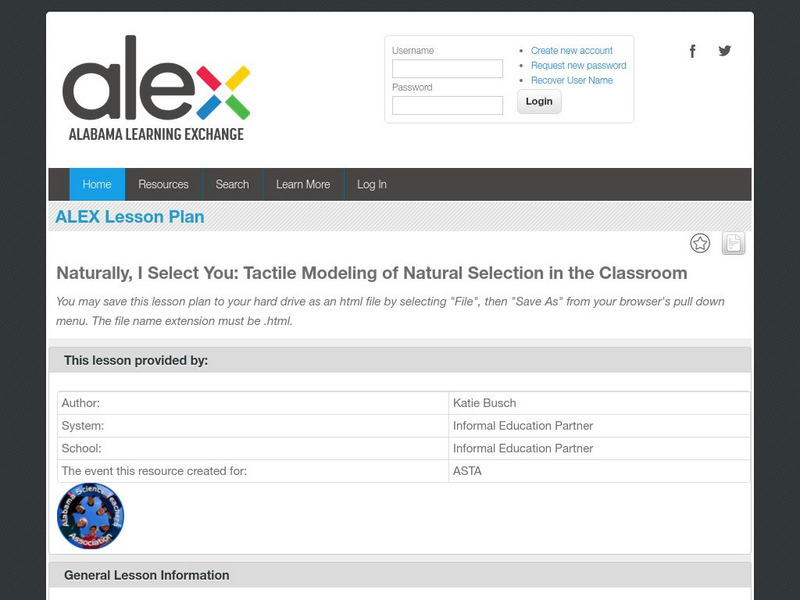Hi, what do you want to do?
University of California
Uc Museum of Paleontology: Misconceptions About Science
This page addresses the several topics students may have misconceptions about in science. Page addresses topics such as the limits of science to misinterpretations of the scientific process in a FAQ type of responses.
BioEd Online
Bio Ed Online: The Science of Hiv/aids: Hiv/aids in the United States
When HIV/AIDS first emerged in North America, people were frightened by it and this led to the spread of false information about this disease. Students will learn to separate the facts from the fiction, and will create presentations on...
University of Georgia
University of Georgia: What Science Isn't
This series of notes from a geology professor explores and explains several misconceptions about the nature of science. Sections are titled: A Historical Perspective; Science Isn't Art; Science is not Technology; Science isn't Truth and...
Annenberg Foundation
Annenberg Learner: Science in Focus Energy: What Is Energy?
A video workshop looking at the concept of energy. Discussions include energy as it is used in everyday language to the complex scientific meaning of energy. Presents common student misconceptions, history, and the importance of energy...
Annenberg Foundation
Annenberg Learner: Science in Focus: Energy: Energy in Food
A video workshop examining how the Sun provides energy for all living things beginning with the process of photosynthesis. Presents current scientific thinking about energy transfer through the food chain as well as ways to deal with...
Smithsonian Institution
Smithsonian Science Education Center: Chemical Reactions in Action
This video is a professional development resource that explores student misconceptions about atoms, molecules, and chemical reactions. It also gives some pedagogical approaches for approaching these subjects. [10:12]
Australian Broadcasting Corporation
Australian Broadcasting Corporation: News in Science: Dinosaurs and Cave People
Site uncovers the truth behind some common dinosaur myths.
Smithsonian Institution
Smithsonian Science Education Center: Conceptual Change: How New Ideas Take Root
Develop a more nuanced understanding of how student ideas are formed both in and outside of the classroom. By understanding the student's misconceptions on scientific ideas, you can better structure your lesson to be more effective. This...
Other
Ohio Public Library Information Center: What's That Snake?
The Ohio Public Library information network provides an extensive tool allowing users to search for snakes by name as well as by narrowing down characteristics until you've located a particular type. Myths, facts, and misconceptions are...
Louisiana Department of Education
Louisiana Doe: Louisiana Believes: Ela Unit: Grade 1: Mooncake
First graders learn factual information about the moon and how light creates shadows. Noting that authors oftentimes use their imaginations to create stories, 1st graders explore how misconceptions and misunderstandings can often be...
Alabama Learning Exchange
Alex: Naturally, I Select You: Tactile Modeling of Natural Selection
For this simulation lesson, students investigate the role of natural selection and survival within a frog population living in a changing environment. Includes student handouts along with an assessment piece.






